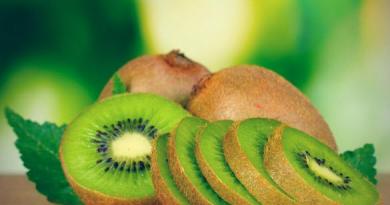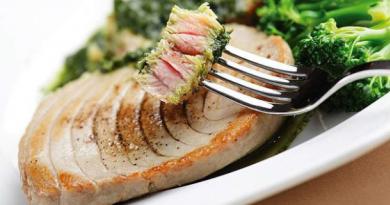Almost everyone has experienced the unpleasant symptoms of food poisoning. Therefore, the signs of this condition are well known to everyone. Nausea, vomiting, constant diarrhea are very exhausting for a person. The patient feels severe weakness. And, of course, the stomach hurts very much after poisoning. What to do in such a situation? How to help the body survive poisoning and recover faster?
General principles
Before thinking about when the stomach hurts after poisoning, what to do, you need to understand what you are dealing with.
Poisoning is an acute disorder of the digestive system, provoked by the intake of toxic or low-quality foods and drinks.
There are such types of pathology:
- Food poisoning. It provokes the use of low-quality products, contaminated food. Ignoring sanitary rules can lead to such poisoning.
- Non-infectious toxic poisoning. Their occurrence is dictated by the penetration of chemical or natural toxins into the body along with food. These are various chemicals, poisonous plants, mushrooms.
You can only fight on your own at home with the first type of poisoning. If there are suspicions of a non-infectious nature of the pathology, then an appeal to the doctor is mandatory.
In addition, regardless of the cause of poisoning, medical assistance is necessary for pregnant women, nursing mothers, the elderly and children.
Characteristic symptoms
The first signs that characterize poisoning can appear in a person 30 minutes after taking poor-quality food. Sometimes negative symptoms make themselves felt after a day.
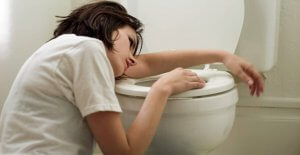
The following characteristic manifestations testify to food poisoning:
- the occurrence of painful nausea;
- the appearance of repeated vomiting (initially eaten food, then gastric juice and, finally, ineffectual vomiting);
- persistent diarrhea (watery stools contain the remains of undigested food, have a fetid odor);
- abdominal pain;
- salivation in large quantities;
- dizziness, weakness;
- chills, fever.
How long does the stomach hurt after poisoning? On average, unpleasant symptoms persist for 1-3 days. Gradually, the severity of such a clinic subsides, of course, if measures are taken to combat the disease in a timely manner.
First aid
Many people complain that their stomach hurts after food poisoning. And this is not surprising. After all, there is toxic food in the body. To slightly reduce the severity of such symptoms, the remains of poisons should be removed from the digestive tract. For such purposes, gastric lavage is performed.
The event is performed as follows:
- Prepare the solution first. You can use potassium permanganate (potassium permanganate). For 1 liter of water you need a small pinch. The solution should be light pink. Baking soda will provide excellent results. To prepare the solution, use the following proportions: for 1.5-2 liters of water - 1 tbsp. l. soda.
- This liquid must be drunk in small sips.
- After drinking a small amount of the solution, induce vomiting. To do this, gently press 2 fingers on the root of the tongue.
- Drink liquids again. Repeat the invocation of vomiting.
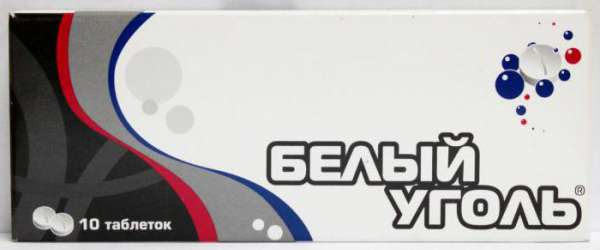
Gastric lavage lasts until clear water comes out of it.
Medical therapy
A person is not always able to quickly find out if his stomach hurts after poisoning, what to do and what medicines to take.
- Sorbents. These are drugs that are able to absorb harmful toxins and remove them from the body. Such drugs should be started as soon as you feel unwell. Excellent sorbents are medicines: "Activated carbon", "Laktofiltrum", "Smekta", "White coal", "Enterosgel".
- Regulatory funds. When poisoned, the body loses a lot of fluid. It is excreted along with diarrhea, vomiting. That is why it is important not to forget about the need to restore the water regime. Excellent drugs for such purposes are Regidron, Oralit, Hydrovit.
- Antipyretic. If a high temperature has risen, then it is recommended to use one of the following drugs: Paracetamol, Ibuprofen.
- Probiotics. They can only be used when the vomiting stops. They help to populate the stomach with beneficial microflora. Excellent probiotics: Acipol, Bifidumbacterin, Biosporin, Bifilong, Linex, Lactobacterin, Enterol.
- Medicines that accelerate the growth of favorable microflora. These drugs are usually taken along with probiotics. Excellent results will be provided by the drugs "Hilak Forte", "Lactulose", "Normaze".
- Enzymes. These remedies improve digestion. They must be included in therapy with meals. It is recommended after poisoning to use such drugs for 1 week. Enzyme preparations: Mezim Forte, Festal, Panzinorm.
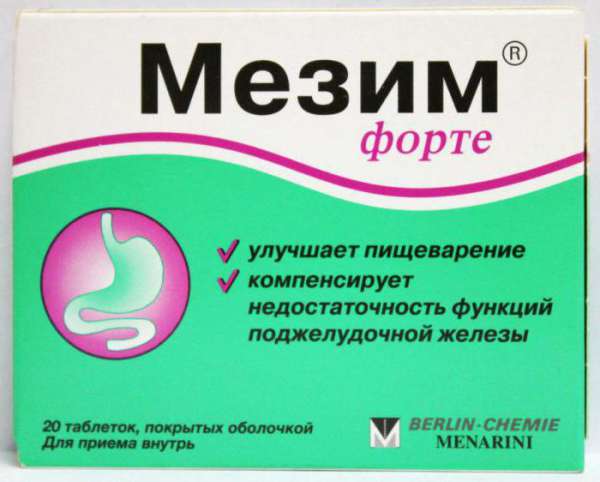
Sometimes treatment after poisoning includes antibiotic therapy. But only a doctor can prescribe such medicines. They are recommended for severe pathology.
Of course, the question is of particular interest: what do they eat after poisoning? After all, the body needs food. However, many products can aggravate the painful condition.
Remember, if you do not want to eat after poisoning, you should not force yourself. As soon as the body needs strength from the outside (from food), it will let you know about it with a feeling of hunger.
First day
On this day, the patient is tormented by extremely unpleasant symptoms. He becomes weak, his stomach hurts after poisoning. What to do and what products are acceptable for consumption?
- If you are not tormented by hunger, then food can be completely abandoned. On this day, the body is extremely weakened and it is simply not capable of wasting energy on high-quality digestion of food. Therefore, reduce your diet as much as possible.
- If you are hungry, then during the first hours you are allowed to use only a few crackers (homemade) and unsweetened tea.
- By the end of the day, you can expand your diet with chicken broth (without vegetables, spices). Allowed the use of watery cereals, liquid mashed potatoes (without milk, butter). Serving size is about 2 tbsp. l.
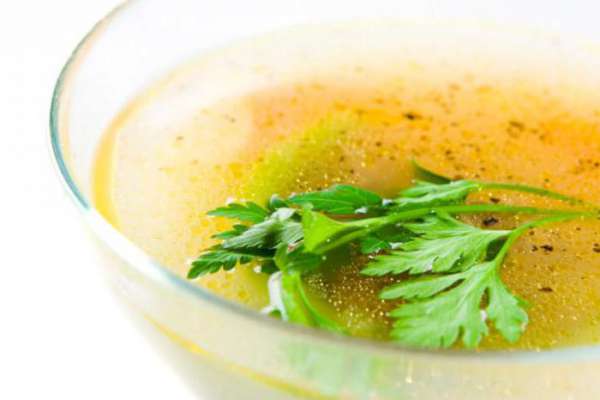
Second day
What do they eat after poisoning on the second day?
- You can include in your diet a small piece of meat (steamed or boiled). Preferably veal, chicken fillet.
- Portion should be small. Size - no more than half the palm.
- It is allowed to diversify the menu with unsweetened jelly (fruit) or jelly.
Third day
On this day, the menu can include:
- lean fish;
- steam cutlets;
- meatballs with light broth;
- souffle, cottage cheese casseroles;
- steam omelet.
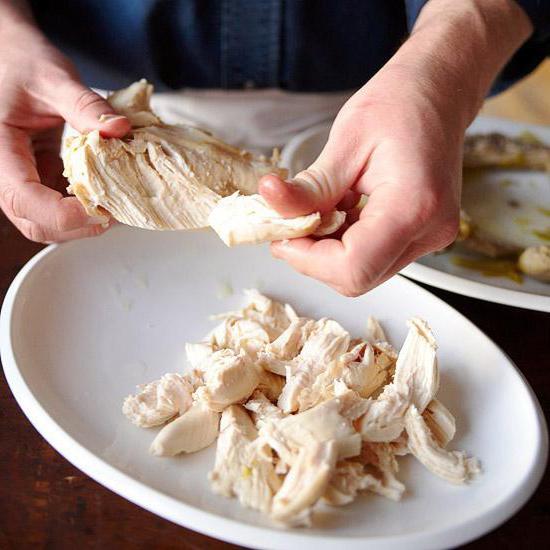
Drinking regime
You need to drink plenty of fluids. Sufficient drinking regimen is the main condition for a quick recovery. The liquid ensures the removal of all harmful substances from the body, cleansing of toxins. In addition, it protects against the negative effects of dehydration.
The usual rate of water per day is 1.5-1.8 liters. During the period of poisoning, it should be increased. To ensure a full fight against toxins, the body will need 2.5 liters of water per day.
In addition, the following drinks are very useful for the stomach after poisoning:
- compote, cooked from dried fruits;
- rosehip decoction;
- weak tea (green or black) without sugar;
- homemade jelly;
- infusion of soothing herbs (for example, chamomile).
Prohibited foods after poisoning
Some foods can significantly aggravate a person's condition. Therefore, remember what food should be avoided.
From the diet of a person who has undergone poisoning, it is necessary to exclude:
- Alcohol. Such drinks put a strain on weakened organs: kidneys, liver.
- Raw vegetables, fruits. They have a laxative effect. Therefore, by introducing them into the diet, you will increase diarrhea. Only for 4 days you can eat non-acid fruits. It is best to eat apples in a baked form.
- Sweets, pastries. Try to avoid such food. If this is difficult enough, then replace desserts or pastries with a spoonful of jam, honey.
- Sausage. Such products are enriched with preservatives, various additives.
- Barley, oatmeal, millet porridge. These products contain a lot of fiber. It will be very difficult for a sensitive stomach lining to process such food. It is much more useful to use buckwheat porridge, thoroughly boiled.
- Dairy and dairy products. They can significantly aggravate the symptoms in the first days after poisoning.
- Fried food. It is acceptable to use boiled, baked, stewed or steamed food.
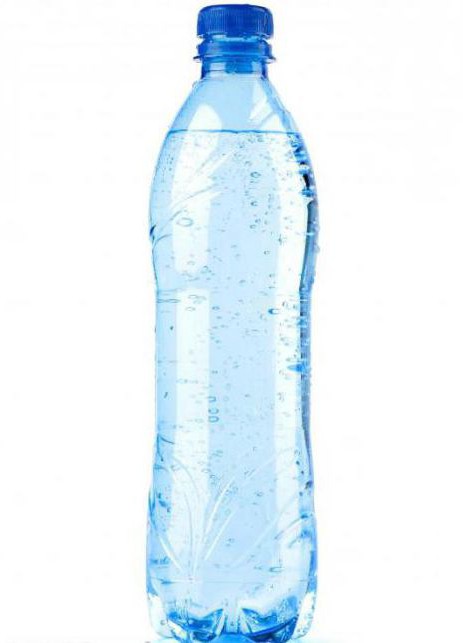
Every person at least once in his life experienced unpleasant painful conditions associated with poisoning. This ailment in a short time greatly depletes the body. Nausea, vomiting and diarrhea are constant "companions" of poisoning.
As a result, pathological weakness and dehydration occur, which can lead to complications. Therefore, at the first signs of an insidious disease, measures should be taken immediately. Rest mode and a sparing diet help well. More about this.
What should be done with symptoms of poisoning?

If poisoning occurs, immediate action must be taken.
- First you need to rid yourself of unnecessary burdens. It would be appropriate to take time off from work, since the work process requires energy and strength, which are not enough in a state of poisoning. Giving yourself a rest mode will be a wise decision.
- Many experts agreed that diarrhea that occurred during the period of poisoning should not be stopped with special drugs (for example, Lopedium or Imodium). Why? Recent studies have shown that in this state it is better if the body gets rid of toxins (through the process of diarrhea) in a natural way. Treatment of diarrhea with drugs may require additional treatment later.
- If there is severe vomiting or loose stools, then you can resort to a folk recipe - drink a glass of freshly squeezed pumpkin juice. This greatly helps to reduce the intensity of symptoms of poisoning and improves the patient's condition.
- A very simple but effective way to remove toxins from the body is to use the well-known activated carbon or Enterosgel. Coal is usually taken at the rate of 1 tablet per 10 kg of body weight.
- Naturally, at the "peak" of poisoning, when symptoms of nausea and vomiting are clearly manifested, loose stools are observed, it is absolutely impossible to eat food, not to mention the use of alcohol and other harmful substances.
- When the acute period subsides, it is appropriate to take probiotics, which help restore the normal microflora of the gastrointestinal tract. These drugs include: "Lactobacterin", "Linnex", "Enterosgel", "Hilak Forte", etc. The annotations to the preparations indicate the required dosages.
- What is the difference between ordinary (domestic) poisoning and poisoning due to damage to the body by pathogenic microorganisms?
- It should be noted that one must learn to differentiate (separate) ordinary household poisoning from poisoning caused by harmful bacteria and viruses. What is the difference? These two pathological conditions differ in severity. Damage by harmful microorganisms is much more serious and can cause diseases that affect organs and systems. Such infections include, for example, hepatitis and salmonellosis. In these cases, hyperthermia (fever), severe pain in the epigastric region, sometimes convulsions and shortness of breath join the already known symptoms (vomiting, diarrhea and nausea). This condition requires immediate medical attention.
Household poisoning occurs, as a rule, due to the use of low-quality products or products with an expired sale period. Simple poisoning proceeds much easier (as already mentioned above) and does not pose a particular threat to human health and life.
What can you eat after poisoning?
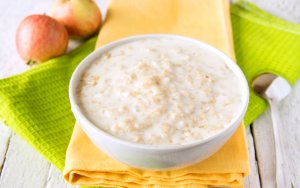
After poisoning, you need to eat food that is easy for the stomach.
So, if the acute period has passed and the body gradually begins to “depart” from the stress it has received, it is also necessary to gradually start eating.
What can you eat? If it has become much easier and a slight feeling of hunger has appeared, then doctors advise not to immediately overload the stomach, but to eat foods that will be easily digested. Such products include ordinary crackers and tea without sugar.
The next meal can already consist of a light chicken broth without the addition of vegetables and spices. You can also use liquid cereals and mashed potatoes, just do not add salt, milk and butter to them.
Diet meals should be eaten in small portions so as not to overload the already affected stomach. Sometimes 2-4 tablespoons per dose may be enough. This diet is acceptable on the first day after poisoning.
On the second day, you can add a small piece (no more than half a palm) of boiled lean veal or chicken breast (fillet) to the menu. You can also make jelly without sugar or unsweetened jelly.
On the third day, it is allowed to eat low-fat fish, steamed (in the form of cutlets, dumplings or meatballs). You can make meatballs in a light broth. Steam omelettes, low-fat cottage cheese casseroles and soufflés are also appropriate.
On the fourth day, if the symptoms of poisoning are no longer observed and the person feels good and feels a surge of strength, you can return to your usual diet and diet.
However, this must be done within reasonable limits. You should not, for example, immediately start eating your favorite cakes or smoked sausage. It is necessary to leave the period after the transferred poisoning very carefully.
In the first week, it is not recommended to eat fatty, fried, spicy foods and sweets. Food should be simple, it is better to give preference to natural products that do not irritate the gastric mucosa. It will also be helpful to eat small meals 5-6 times a day.
Do not lose sight of the slightest changes in the state of health and the nature of the chair. If alarming symptoms appear (for example, loose stools or nausea), you should adjust your diet.
What should you drink in case of poisoning?
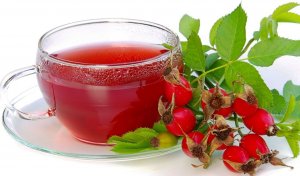
Rosehip decoction will help to quickly get rid of the symptoms of poisoning.
In this situation, first of all, you need to drink plenty of water. It is better if it is purified or boiled water.
Drinking plenty of fluids will help to remove toxins from the body as soon as possible.
And if normally a healthy person is supposed to drink from 1.5 to 1.8 liters of fluid per day, then after poisoning the recommended volume should be increased to 2.5 liters. You can also use:
- decoction of rose hips;
- dried fruits compote;
- black tea without sugar and weakly brewed green tea;
- homemade jelly;
- infusion of chamomile and other herbs that have a sedative effect.
It is because of the loss of a large amount of fluid due to vomiting and diarrhea in the body that the water-salt balance is disturbed. This causes dizziness and weakness, a feeling of dry mouth and headache.
To normalize the water balance, experts advise replacing part of the fluid consumed with electrolyte solutions. The most common drugs in this group are Regidron and Hydrovit.
The video will tell about the symptoms and treatment of poisoning:
What is forbidden to eat and drink after poisoning?
- Naturally, alcoholic beverages should be completely excluded. They put a heavy burden on the liver and kidneys, which have already suffered as a result of poisoning.
- Sweet tooths will have to do without their favorite buns and desserts for a while. After poisoning, a small amount of honey or jam with tea is allowed.
- Reception of dairy and sour-milk in the first week after poisoning should be limited. These products will be useful after recovery to restore the normal microflora of the gastrointestinal tract.
- Raw vegetables and fruits have a laxative effect, which is completely contraindicated in case of poisoning. Only 4-5 days after the exacerbation, you can try to eat soft and non-acidic fruits, such as bananas. However, you shouldn't get carried away with them. Baked apples, boiled and grated vegetables will be useful.
- It is better to refuse dishes from eggs for a while. The only exceptions are steamed omelettes.
- It is not recommended to eat oatmeal, pearl barley and millet porridge because of their saturation with fiber, which is hard to perceive by the gastric mucosa after poisoning.
- Juices, compotes and jelly are best prepared at home and with a minimum amount of sugar. They shouldn't be sour. They must be used within reason. It is better to give preference to jelly and dried fruit compotes.
- Boiled and smoked sausages should be abandoned, as the preservatives contained in them can negatively affect a weakened stomach.
- Excluded after poisoning the use of fried foods. It is useful to cook food in a water bath, boil them, stew and bake.
What diet should children follow after poisoning?

The diet for poisoning should consist of low-fat foods.
Food poisoning in children occurs at least as often as in adults, and sometimes more often.
This is due to the insufficiently strengthened and developed digestive system in children, which is manifested in the increased sensitivity of the gastrointestinal tract to certain products. In addition to the main treatment, the pediatrician also prescribes diet therapy. It consists of the following:
- in the first three days, the child should be given only grated dishes in a semi-liquid form. This also applies to cereals;
- fish and meat products should be low-fat and steamed in the form of meatballs, meatballs and soufflés;
- food should be prepared immediately before consumption and given to the child in small portions 6-7 times a day every 2-2.5 hours.
You should not try to feed the child if he does not want to, as this can provoke another bout of vomiting or nausea in the baby. And you need to water the child more often, this will help to avoid dehydration and return to normal faster. The menu for children after poisoning is as follows:
- 1st day. After an acute attack of poisoning, after a few hours, you can give the child weak tea without sugar and a cracker of white bread.
- In the evening, you can cook liquid semolina, mashed potatoes on the water or chicken broth. One meal should not exceed 1-2-3 tablespoons. If this child is not enough and he feels hungry, then you can give him a second portion after 1-1.5 hours.
- 2nd day. You can try to use fractional nutrition, breaking meals into 7 times. The first feeding may consist of a glass of homemade jelly, the second - a compote of dried fruits without sugar, the third - fruit jelly, the fourth - mashed potatoes on water without oil, the fifth - liquid buckwheat porridge on water without oil, the sixth - a cutlet from low-fat fish, steamed, the seventh - steamed veal soufflé.
- 3rd day. Nutrition should also be fractional, only to the above list you can add a low-fat cottage cheese casserole without butter and sour cream, a steam omelet from two eggs and chicken broth with meatballs.
- 4th day. Gradually, you can move on to your usual diet.
- Breakfast may consist of buckwheat or semolina porridge cooked in water and a glass of compote.
- The second breakfast is baked apples with a little jam or honey.
- For lunch, you can serve a portion of chicken broth with a small amount of boiled potatoes and carrots, for the second - a steamed chicken or veal cutlet.
- For an afternoon snack, you can cook milk jelly with crackers.
- Dinner may consist of a steam omelet and fruit jelly.
- The second dinner is 1 cup of chamomile broth and brown bread croutons.
- 5th day. You can reduce the number of meals and increase portions. If the slightest aggravation is noticed, then it is necessary to return to the use of simpler food. The basic principles of the diet after poisoning:
- Plentiful drinking, including purified water and electrolyte solutions.
- On the day of exacerbation, you can eat only crackers and drink weakly brewed tea without sugar.
- On the second day, you should gradually expand your diet to include liquid cereals and mashed potatoes on the water, chicken broth, jelly, jelly, a piece of boiled meat.
- On the third day, you can include boiled fish, scrambled eggs and low-fat cottage cheese in the diet.
- From the fourth day, you need to gradually return to your usual diet.
Childhood poisoning is specific, so they require medical supervision and a strict diet. Proper nutrition after poisoning contributes to the speedy normalization of the condition and the restoration of the body.
An upset of the digestive system against the background of overeating or eating foods contaminated with Escherichia coli or other pathogens is a difficult test for an adult and a child. Proper nutrition in case of poisoning will help the body cleanse and recover faster. Find out which diet is recommended for patients who have a clinical picture of acute indigestion.
Basic principles of nutrition
In order to avoid dehydration and exacerbation of chronic ailments during the period of illness, it is important to observe the drinking regimen. In a situation where food makes you sick, you need to reduce the amount of food. The first week after an acute indigestion involves the exclusion from the patient's diet of heavy meals that load the stomach and internal organs. Answering what you can eat after poisoning, and what diet should be followed, doctors recommend:
- Steam or boil, stew foods.
- Eat food at room temperature and avoid eating hot or cold foods.
- Eat often, but in small portions.
- Avoid confectionery.
Menu for poisoning on the first day
The list of allowed products is initially limited. On the first day of the disease, it is necessary to eat in such a way as to help the body cope with intoxication, restore the balance of electrolytes, and protect the walls of the stomach from acid. The list of what you can eat after food poisoning includes cereals of a slimy consistency, as well as several other products. It is recommended to drink a glass of alkaline drink every hour. The daily volume of liquid should be at least 2 liters. Nutrition for poisoning and diarrhea involves the use of the following products:
- home-cooked white bread crackers;
- rice or oatmeal;
- biscuit cookies;
- bananas.
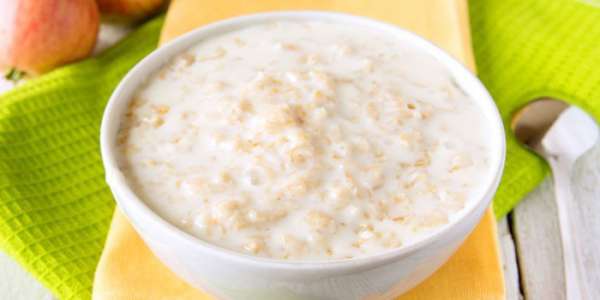
Drinks
The use of not all liquids in disorders of the digestive system is equally beneficial for the patient. So, it is better to refuse strong broths, carbonated, acidic drinks during poisoning. Alkalizing liquids have a therapeutic effect: green tea, rosehip infusion, pear compote, quince. In order to get rid of vomiting and diarrhea, it is recommended to drink:
- Rice broth. For a glass of food product, take 2 glasses of water, then put the cereal to cook until a slimy consistency. Drain the prepared porridge-like mass. Drink the resulting decoction several times a day. Rice in case of poisoning helps to cope with nausea, diarrhea.
- Salt solution. Dissolve a teaspoon of salt in a cup of boiled water. Drink the solution in small sips throughout the day.
- Infusion of pomegranate peels. Pour boiling water over the dried peel of the fruit and leave it under the lid for 20-30 minutes. Use the infusion 4-5 times a day.
A sparing diet in the first week after poisoning
A strict restrictive diet should be followed for 7 days. In the first two days, it is recommended to follow a strict diet, which involves eating several foods - buckwheat porridge, boiled potatoes, white bread crackers and a drinking regimen. Remember, millet groats cannot be eaten in case of poisoning. In the next 4-5 days, it is allowed to expand the diet. During this period, the list of what you can eat after food poisoning is supplemented by the following products:
- chicken broth;
- fermented milk products: cottage cheese, fermented baked milk, yogurt;
- boiled sea fish of low-fat varieties;
- durum pasta;
- baked or boiled vegetables that do not contribute to gas formation.
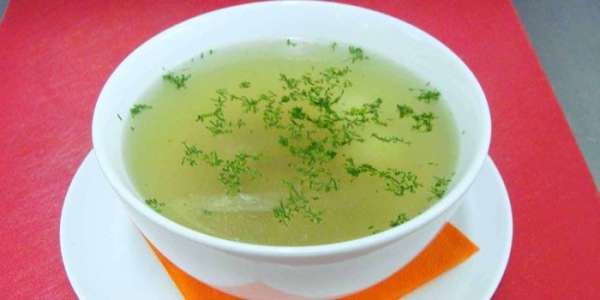
What foods to exclude when eating after poisoning
Against the background of acute indigestion, the mucous membrane of the esophagus and stomach is inflamed. For this reason, non-compliance with the doctor's recommendations regarding prohibited foods can lead to gastritis, duodenitis. Food after poisoning should be prepared without frying, adding hot spices and fatty sauces. During the week, you will not be able to eat the following foods:
- fresh vegetables and fruits (apples contribute to fermentation);
- products fried in a pan;
- canned food;
- millet porridge;
- eggs;
- offal;
- sweet pastries;
- dairy, smoked products;
- legumes;
- black bread;
- all types of cabbage, regardless of the method of consumption;
- butter;
- nuts, dried fruits;
- alcohol;
- sour juices;
- onion garlic.
Exclusion from the diet of these products will help the body recover from poisoning. All of them contain many harmful substances that can aggravate the already serious condition of the patient. Such food promotes gas formation (flatulence), provokes excessive formation of hydrochloric acid in the stomach, and causes fermentation processes.
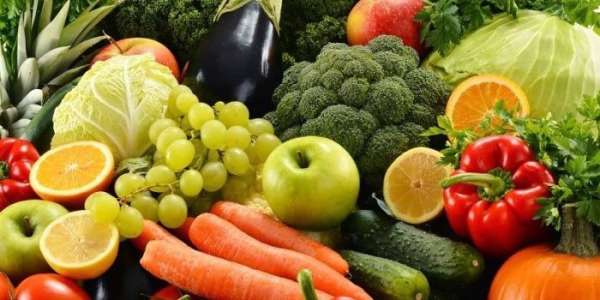
sample menu
Compliance with a sparing diet after poisoning is the key to a speedy recovery. Before you eat any of the forbidden foods, think about how it will affect your well-being. In a normal situation, it happens that a poisoned person does not want to be limited to a list of what can be eaten after food poisoning. This approach is fraught with a relapse of the disease or the development of serious pathologies of the gastrointestinal tract. In order to avoid negative consequences, food in case of poisoning should be healthy, light. A sample menu for the first days of illness is as follows:
meal |
|||||||||
Breakfast 1 | Breakfast 2 | ||||||||
Hunger and drinking plenty of herbal infusions, saline solution |
|||||||||
Broth (100 ml), herbal infusion | Several crackers, green tea (200 ml) | Mashed potatoes without salt, oil (200 g), pear compote | Homemade crackers, green tea | Plentiful drink (water, herbal infusions) |
|||||
Rice porridge, tea with honey | Crackers, biscuits, green tea | Vegetable broth (300 ml) | Pear compote, croutons | Water, tea or herbal tea |
|||||
Fourth | Chicken broth low-fat (300 ml) | Pear compote, biscuit cookies | Vegetable casserole (250g) or steamed fishcakes/meatballs | Green tea, crackers | biscuit biscuits, plentiful drink |
||||
Boiled rice (300 g) | Green tea, biscuits | Vegetable broth with meatballs (400 ml) | Crackers, herbal infusion | Curd soufflé, compote |
|||||


